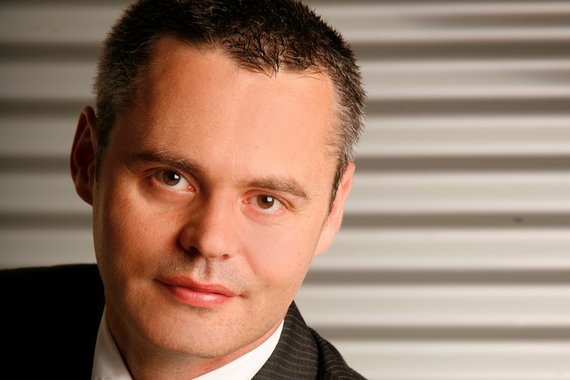- The University
- Studying
-
Research
- Profile
- Infrastructure
- Cooperations
- Services
-
Career
- Med Uni Graz as an Employer
- Educational Opportunities
- Work Environment
- Job openings
-
Diagnostics
- Patients
- Referring physicians
-
Health Topics
- Health Infrastructure
Research team Plank
Research focus: Presicion Medicine
PI: Gernot Plank
Focus: The CCL is focused on the development of advanced computational models of cardiac function, and their application in basic research as well as in translational applications. Research is organized along three major lines, methods-driven research focusing on the development of in silico models of total heart function, applied basic research centered around the use of models for analyzing multiscale-multiphysics mechanisms underlying cardiac function in health and disease, and translational research to leverage computational models of the heart as both an industrial medical device development tool (MDDT) for the design and optimization of cardiac devices as well as using software as a medical device (SaMD) for diagnostic and therapeutic applications in the clinic.
Network: Owing to the multidisciplinary nature of our research we are collaborating with a large network of academic research labs and industry. Specifically, we collaborate in the fields of cardiac electrophysiology (Scherr Lab, Med Uni Graz; Vigmond Lab, LIRYC, Bordeaux; Bishop Lab, Kings College London), cardiovascular mechanics (Niederer Lab, Kings College London; Shadden Lab, Berkeley, USA), mathematical optimization (Pock Lab, TU Graz), cardiac modeling (Krause & Pezzuto Lab, USI; Doessel Lab, Karlsruhe Institute of Technology; Seemann Lab, Freiburg) and scientific computing (Haase Lab, KFU, Graz). The CCL is developing and providing the academic research software openCARP that is used by many leading cardiac electrophysiology modeling labs around the world.
Projects
Optimising a computational model generation and simulation pipeline to guide catheter ablation therapy to facilitate clinical translation
- Ventricular tachycardia (VT), associated with myocardial infarction, is an important cause of sudden cardiac death. The only curative treatment for patients with incessant VT is radiofrequency ablation, involving the intense delivery of energy to key targets within the ventricle. This highly invasive therapy is, however, associated with long procedure times and high complication rates. The projects aims to develop a novel computational platform for accurately and robustly identifying catheter ablation targets in real-time during a ventricular tachycardia (VT) ablation procedure using patient-specific anatomical and functional information.
- Duration: 2019-2021
- Funded by: Wellcome Trust Innovator Award
- Project partner: Martin Bishop, Kings College London, UK
Metrology of automated data analysis for cardiac arrhythmia management (MedalCare)
- Electrocardiography (ECG) is used for a non-invasive and cost-effective way for clinical examinations and patient monitoring of patients suffering from cardiovascular diseases (CVD). Automated detection systems and machine learning techniques are becoming available for diagnosing and monitoring CVD. However, to trust algorithmic decisions, a standardized procedure to validate the complex underlying algorithms are needed. MedalCare develops a synthetic database of ECGs of known ground truth to provide traceability for CVD data analysis techniques. Such validated traceable datasets are key for developing new ECG devices with improved CVD diagnosis reliability.
- Duration: 2019-2021
- Funded by: European Commission
- Project partner: Physikalisch Technische Bundesanstalt Berlin, Deutschland, National Physics Laboratory, UK, LNE, Frankreich, Karlsruher Institut für Technologie, Deutschland, Technische Universität Berlin, Deutschland, Kings College London, UK
Semantic Image Segmentation by Deep Active Learning in medical imaging applications (SISDAL)
- Semantic segmentation is one of the fundamental machine learning (ML) challenges in medical image analysis. Unfortunately, training state-of-the-art ML models based on deep neural networks in a supervised setting depends on the availability of large amounts of accurately annotated data. Therefore, for many companies, the use of deep learning is economically challenging or even not possible. The research partners, MedUni and ICG together with SME partner KML VISION, aim to bring cutting-edge technology to customers by integrating training of a deep neural network into an active learning strategy.
- Duration: 2020-2021
- Funded by: Österreichische Forschungsförderungsgesellschaft mbH (FFG)
- Project partners: Ludwig Boltzmann Institut für Klinisch Forensische Bildgebung (LBI CFI), Technische Universität Graz, Institut für Maschinelles Sehen und Darstellen (ICG), KML VISION OG (KML)
SICVALVES - Multiscale Modeling of Valvular Heart Diseases
- The incidence of valvular heart diseases is increasing dramatically and is becoming a serious health burden. Although the majority of patients are treated effectively by various surgical or interventional methods, there is a large need for improving our understanding of disease mechanisms and precision treatment planning. The main goal of the project is to develop and validate computational models to investigate the mechanisms responsible for the transition from adaptive to maladaptive hypertrophy (including gender differences) and to optimize decision making in borderline and complex cases.
- Duration: 2020-2023
- Funded by: SICVALVES receives funding from the European Union's Horizon 2020 research and innovation programme under the ERA-NET co-fund action No. 680969 (ERA-CVD SICVALVES) funded by the Austrian Science Fund (FWF), Grant I 4652-B.
- Project partners: Universität Bordeaux, IMB Unit 5251 – IHU Liryc, Campus Xavier Arnozan, Bordeaux, Frankreich, Charité - Universitätsmedizin Berlin Campus Virchow-Klinikum, Institut für kardiovaskuläre Computer-assistierte Medizin, Berlin, Germany
Division of Biophysics
Univ.-Prof. Priv.-Doz. Dipl.-Ing. Dr.
Gernot Plank
Gernot Plank
T: +43 316 385 71526



